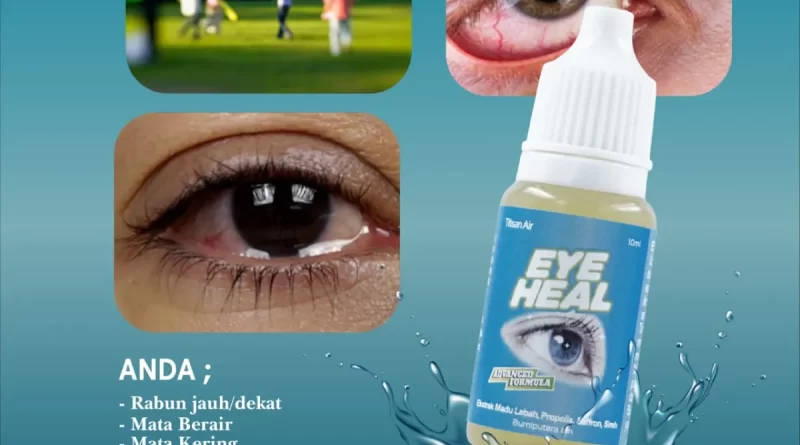Crystal Clear: Insights and Advice for Optimal Eye Health
Crystal Clear: Insights and Advice for Optimal Eye Health
Introduction:
Your eyes are invaluable assets, allowing you to perceive the world in all its beauty. The importance of maintaining good eye health cannot be overstated. From the early morning sunrise to the vibrant colors of a blooming garden, our eyes enable us to experience life to the fullest. In this blog, we will explore essential insights and provide valuable advice for achieving and preserving optimal eye health.
- Understanding the Anatomy of the Eye: To comprehend the significance of eye health, it is essential to understand the complex structure of the eye. The eye consists of various components, including the cornea, lens, retina, optic nerve, and macula. Each component plays a crucial role in vision, and any impairment can lead to visual problems. Familiarize yourself with the anatomy of the eye to better appreciate the importance of eye care.
- Regular Comprehensive Eye Examinations: Regular eye examinations are the foundation of maintaining good eye health. They help detect potential issues at an early stage, allowing for prompt treatment. During an eye exam, an optometrist or ophthalmologist assesses your visual acuity, examines the health of your eyes, and checks for any underlying conditions such as glaucoma, cataracts, or macular degeneration. Even if you have no apparent vision problems, it is still recommended to have a comprehensive eye examination every one to two years.
- Protect Your Eyes from Harmful UV Rays: Exposure to ultraviolet (UV) rays can be harmful to your eyes. Prolonged exposure to UV radiation increases the risk of developing conditions such as cataracts and macular degeneration. To protect your eyes, wear sunglasses that block both UVA and UVB rays whenever you’re outside, even on cloudy days. Additionally, consider wearing a wide-brimmed hat to further shield your eyes from the sun’s harmful rays.
- Practice Good Digital Eye Hygiene: In the digital age, we spend an increasing amount of time in front of screens. Prolonged screen time can lead to eye strain, dryness, and fatigue, commonly known as computer vision syndrome. To mitigate these issues, follow the 20-20-20 rule: Every 20 minutes, look away from your screen and focus on an object 20 feet away for at least 20 seconds. Adjust your screen’s brightness and contrast to reduce eye strain, and position it at a comfortable distance to avoid excessive eye movement.
- Maintain a Balanced and Nutritious Diet: Your diet plays a significant role in maintaining good eye health. Include foods rich in omega-3 fatty acids, vitamins C and E, zinc, and lutein to support healthy eyes. Leafy green vegetables, fish (such as salmon and tuna), citrus fruits, eggs, nuts, and seeds are excellent sources of these essential nutrients. Antioxidants present in these foods help protect your eyes from damage caused by free radicals.
- Quit Smoking: If you needed another reason to quit smoking, here it is: smoking has detrimental effects on eye health. Smoking increases the risk of developing age-related macular degeneration, cataracts, and optic nerve damage. The toxic chemicals in cigarette smoke can harm the delicate structures of the eye and impede proper blood flow. Quitting smoking is one of the most beneficial steps you can take for your overall health, including your eyes.
- Protect Your Eyes from Injury: Accidents can happen, but taking precautions to protect your eyes is crucial. Whether you’re playing sports, doing household chores, or working with hazardous materials, wearing appropriate eye protection such as safety goggles or glasses can prevent severe eye injuries. Be mindful of potential eye hazards in your surroundings and take necessary measures to shield your eyes from harm.
- Maintain a Healthy Lifestyle: A healthy lifestyle promotes good overall health, including eye health. Regular exercise helps improve blood circulation and oxygen flow to the eyes, reducing the risk of developing eye diseases. Additionally, managing conditions like diabetes and hypertension through a balanced diet and regular medical check-ups can significantly minimize the impact on your eyes.
- Proper Contact Lens Care: If you wear contact lenses, it is vital to follow proper hygiene and care practices to avoid eye infections. Clean and disinfect your lenses as recommended by your eye care professional. Avoid sleeping or swimming with contact lenses, as this can increase the risk of infection and other complications. Replace your lenses as advised, and never exceed their recommended usage time.
- Be Aware of Family History: Certain eye conditions, such as glaucoma and macular degeneration, have a hereditary component. If these conditions run in your family, it is crucial to be aware of your genetic predisposition and inform your eye care provider. Regular eye examinations and early intervention can help manage and reduce the impact of hereditary eye conditions.
Conclusion:
Caring for your eyes is a lifelong commitment to maintaining optimal eye health. By understanding the anatomy of the eye, undergoing regular comprehensive eye examinations, protecting your eyes from harmful UV rays, practicing good digital eye hygiene, maintaining a balanced diet, quitting smoking, protecting your eyes from injury, adopting a healthy lifestyle, properly caring for contact lenses, and being aware of your family history, you can significantly reduce the risk of developing eye problems and enjoy clear vision for years to come. Remember, your eyes are precious, and taking proactive steps to care for them is essential.




